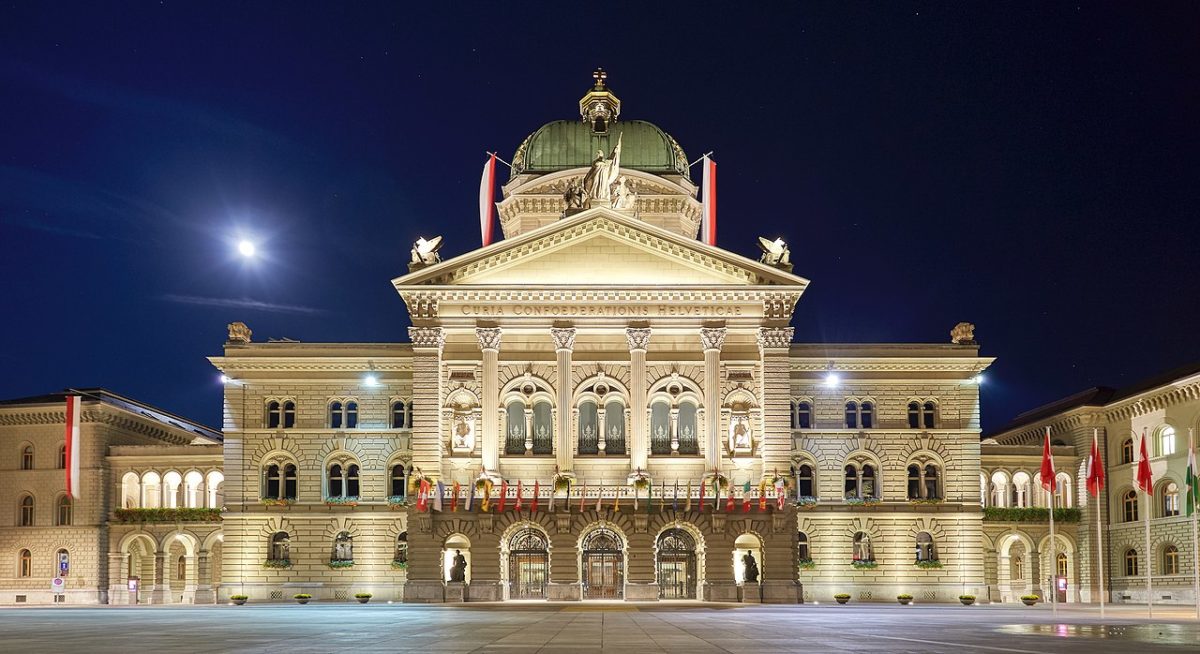COVID-19 and the Swiss People’s Party: Walking a Fine Line Between Government and Opposition

by Dr. Adrian Favero (University of Birmingham)
Switzerland’s first COVID-19 case was reported on 25th of February 2020 in the Italian-Swiss canton of Ticino. Soon after, the country started recording large numbers of positive cases. On the 16th of March 2020, the Swiss government (Federal Council) declared an “extraordinary situation” under the Epidemics Act. This declaration allowed the government to implement restrictive measures to contain the spread of the virus without needing any immediate approvals from parliament. However, invoking extensive powers created the potential for much controversy amongst regional and national parties.
The populist radical right wing Swiss People’s Party (SVP) – which operates nationwide – found itself in a difficult place. Holding two out of seven seats in government, the SVP joined other, non-populist, parties in declaring that they would stand united behind the Federal Council’s position and did not immediately seize the opportunity to hold the Federal Council accountable for its decisions.
However, moving towards a more typical populist standpoint by starting to criticise the “elite”, the SVP changed tack two weeks later and advocated the limitation of state intervention, so as to avoid massive damages to the national economy. Over the coming months, the party increasingly opposed the government’s interventions and promoted its own strategy to contain the pandemic, based on its core ideological co-ordinates. These included: strict border controls, the principle of self-reliance, and the protection of the Swiss economy. The party also used the Covid-19 crisis to push its initiative to reduce the number of new migrants from the EU, which was ultimately rejected by Swiss voters in autumn 2020.
After a relatively calm summer characterised by a drop in the number of cases, Switzerland experienced a rise in COVID-19 cases throughout the autumn of 2020. The SVP continued to criticise the Federal government’s measures on the grounds of their alleged negative effect on the national economy and on the well-being of Swiss citizens. The party also repeatedly demanded an immediate end to the “lockdown” during early 2021. Despite having two representatives in government, as mentioned, the SVP singled out the Federal Minister of Health – a Social Democrat – as the target of harsh criticism of the executive’s measures, going so far as accusing the government of becoming a dictatorship.
On the 13th of June 2021,the Swiss electorate approved the COVID-19 Act via a national referendum (the “Yes” vote reaching 60.2%). The Act grants the Federal Council additional powers to combat the pandemic and mitigate its negative effects on society and the economy. In contrast to all other parties represented in government, the SVP did not take an official position on the vote. This reflected the party’s divisions, as it was split between those welcoming the financial help provided by the government and those particularly critical of its handling of the pandemic.
During the summer of 2021, the SVP advocated “return to normalcy”. With lower case numbers and the vaccine available to all, the party opposed the extension of “COVID-19 passes” to everyday activities, and making vaccination compulsory. In this fashion, the SVP still walks a very fine line between being in government and performing the role of an opposition — despite the consociational logic of the Swiss system requiring collaboration between main parties that share government responsibilities.
Dr. Adrian Favero is the Populism in Action Project’s Switzerland focused Research Fellow. You can follow him on Twitter here.
